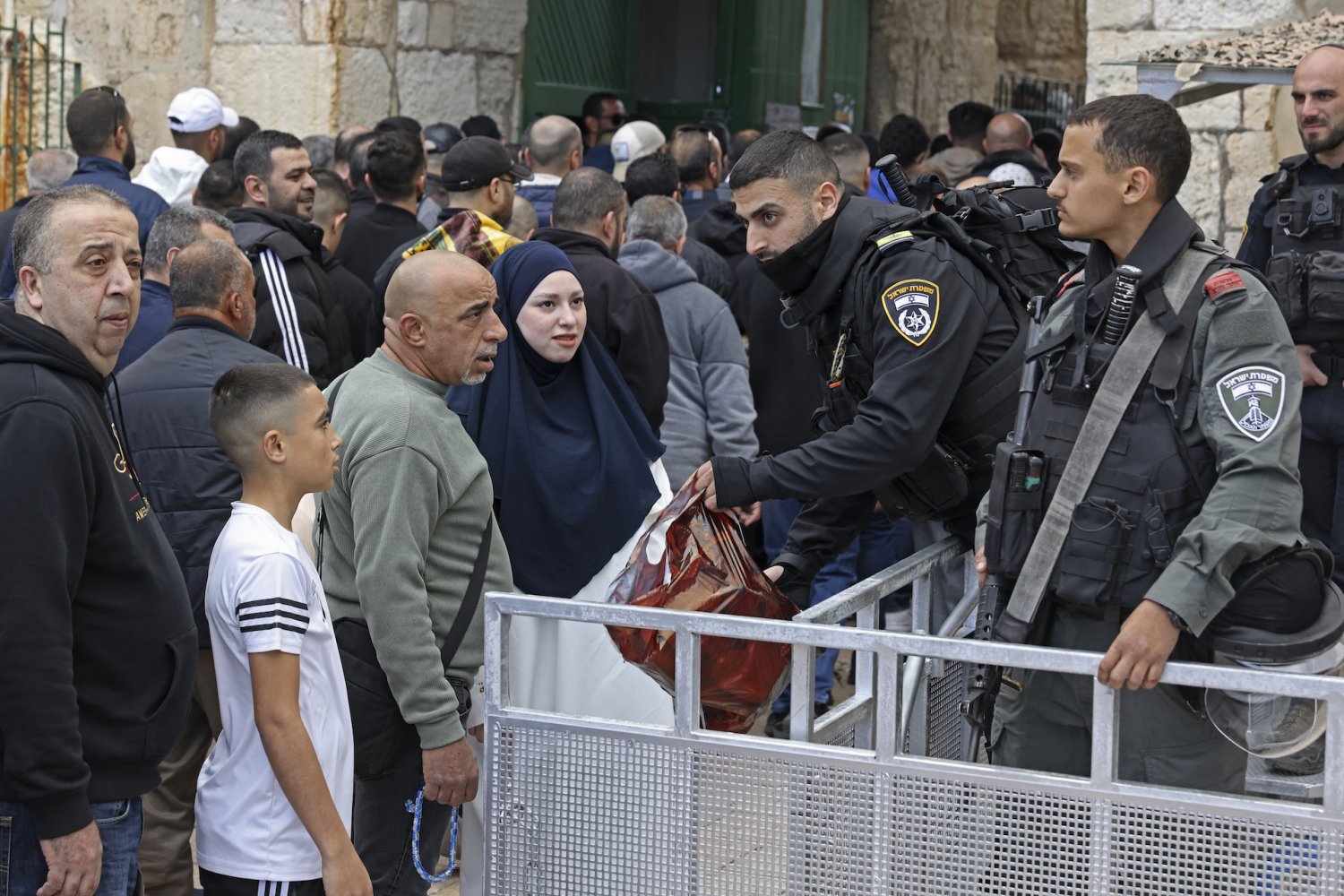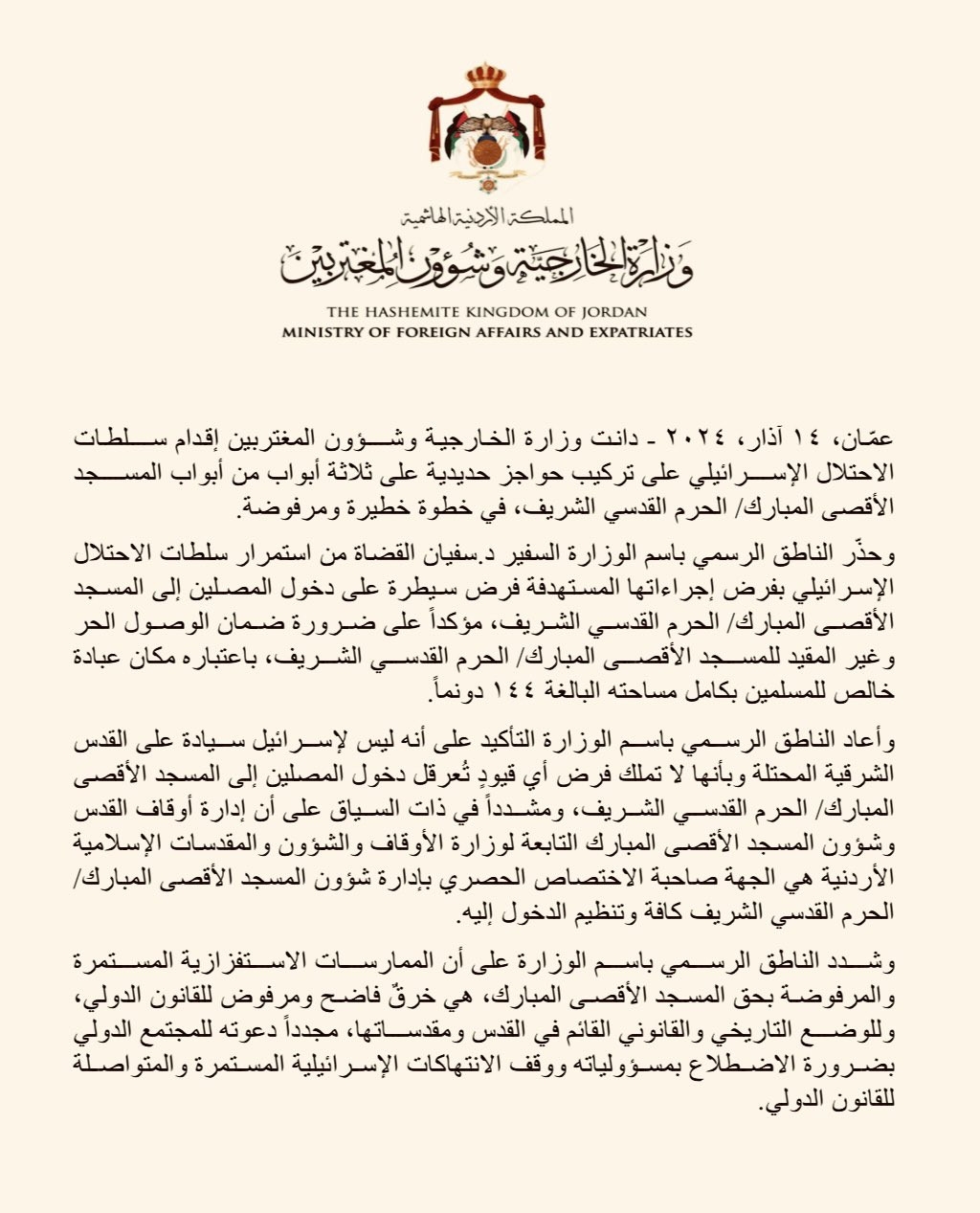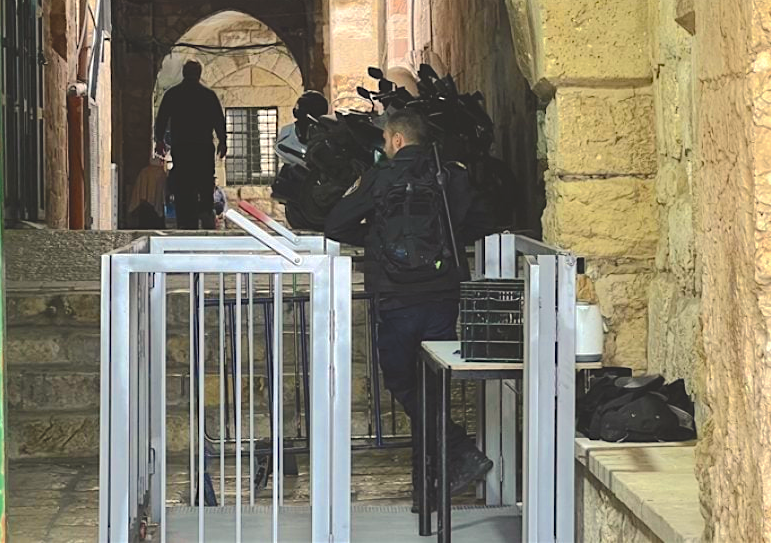Believe me, I say at every dawn prayer during the month of Ramadan, may God protect us from what this day has in store for us. We do not know what might happen in terms of the surprises that Israel is preparing for us in Jerusalem and around al-Aqsa Mosque in the blessed month of Ramadan. We are not living in a normal state. Everything is complicated and tense with us. We are always living in fear of what is coming, but we say, “thank God.”1

Credit:
Ronaldo Schemidt/AFP via Getty Images
A Ramadan Dawn Prayer: “May God Protect Us from What This Day Has in Store for Us”
So said Hajj Abu Hamza, 78, from Jabal Mukabbir, speaking to Jerusalem Story as he looked at the new metal barriers installed for the first time by the Israeli police at King Faisal’s Gate, which Abu Hamza used to use to enter and exit al-Aqsa Mosque, because it is the least crowded of the gates to the mosque.
These barriers will obstruct the arrival of worshippers, that much is clear.
Abu Hamza walks slowly and leans on his cane. He and other seniors like him will have to wait while more able-bodied people pass them by.
No one expected the Israeli police to place metal cage-like barriers outside the three least-trafficked gates to the Haram al-Sharif compound where the mosque is located—namely, King Faisal Gate on the northern side, Bab al-Hadid on the western side, and Bab al-Ghawanmeh on the far western side.
These barriers, installed on the fourth day of the month of Ramadan, created a state of panic among Jerusalem’s Muslim worshippers. It reminded them of the electronic gates that Israel tried to impose on worshippers and on the Waqf Council back in July of 2017. That effort failed (the gates were removed after only 11 days) because of popular protest in Jerusalem and the rest of Palestine. Today, Jerusalemites fear that these cages are the beginning of a comprehensive and more dangerous attempt to alter what is known as the status quo.
The Jordanian Ministry of Foreign Affairs and Expatriates condemned the erecting of barriers outside the doors of al-Aqsa Mosque, calling it a dangerous and unacceptable measure (see Box).
The Palestinian Ministry of Foreign Affairs also condemned the move, accusing Israel of attempting to change the historic, legal, and political reality of al-Aqsa Mosque.2
The Israeli police immediately issued a statement in which they claimed that the barriers were actually installed to protect their own troops at the entrance of the mosque.
Far from calming the situation, this statement in fact increased tensions further. It was regarded as yet more evidence of Israel’s determination to change the status quo and to flex its muscles during Ramadan.
Abu Hamza adjusted his white kufiyyeh, muttered a prayer, and continued ambling slowly to al-Aqsa Mosque for the evening prayer.
Statement by the Jordanian Ministry of Foreign Affairs and Expatriates on the New Barriers at al-Aqsa Mosque Gates

Issued March 14, 2024, via the Jordanian Ministry’s account on X
Expressing condemnation and consternation at the unilateral Israeli change (in Arabic)
Notes
Hajj Abu Hamza, interview by the author, March 15, 2024.
“Palestine Condemns Israel for Installing Iron Barriers at 3 Gates Leading to al-Aqsa Mosque,” Yeni Safak, March 14, 2024.

